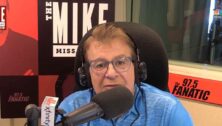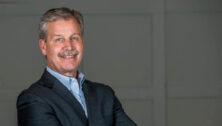Bucks County Leadership: Dorothy Jaworski, Treasurer, Penn Community Bank
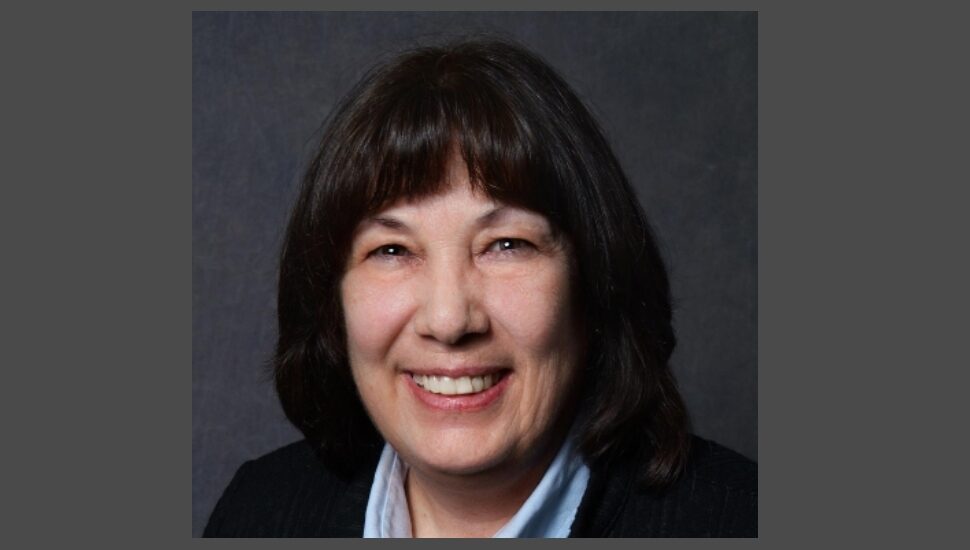

Dorothy Jaworski, Treasurer for Penn Community Bank, spoke to BUCKSCO Today about growing up in Conshohocken and Trooper with three siblings. She started working at a bank part-time as a teller in her senior year of high school and loved it so much that she pursued it as a career.
Jaworski described why she chose to go to West Chester University, where she studied business. She explained what a bank treasurer does and how several influential mentors helped her land that role. And she talked about writing and researching several books about World War II history.
Where were you born, and where did you grow up, Dorothy?
I was born the third of four children in Conshohocken and lived there until I was six. We lived in my grandparents’ house on Hector Street. Then my parents bought a place up in Trooper. My mother still lives there – she’s 92 years old.
What did your parents do?
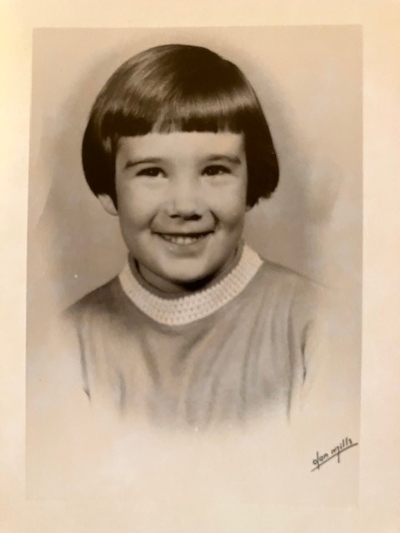
My father was an accountant at Crane Company in Warrington. My mother worked at Eagleville Hospital as an executive secretary.
Looking back, what was your role in the family?
I probably was the peacemaker. I never made much trouble. Today my siblings call me the organizer. I’ll plan different things as we go to the Jersey Shore, get a house, and plan that for everybody. I’ll call them and say, “Let’s go to dinner.” I try to organize and keep the family together.
What do you remember about growing up in Conshohocken and Trooper?
It was fun. I had lots of friends on Hector Street.
What about Trooper? Was that a hard move for you to make?
Not really. It was a brand-new development, so every family moving in was brand-new. You got to meet all the people right away. In those days, the moms would take something over and introduce themselves. Then we’d find out there’s a bunch of kids there, and we’d be excited.
When you were growing up, did you play any sports?
I played a lot of softball. Even after I got out of college, when I worked at a bank, several banks formed a league, and we had games all the time.
Were you any good at softball?
I was okay. I hit a couple of home runs, but I was good at hitting to the opposite field. I was the catcher, and it did a number on my knees after a while.
What kind of music did you listen to in high school, Dorothy?
Mostly rock and roll. One of my favorites was always Rod Stewart. I’ve seen him 27 times in the area. I just passed up an opportunity to see him – we were going to get tickets for Hershey because he would be there at the end of August. But it’s an outdoor stadium, and it’s going to be too hot.
He’s such a performer, in addition to singing. And he’s always got a good band with him.
Do you have a favorite song of his?
He did a cover of a Tom Waits song, “Downtown Train.” That’s probably one of my favorites. “Forever Young” is another one.
What jobs did you have in high school?
My very first job, before I was even 16, a friend of mine, her father, did mass mailings of brochures to companies. We would put the labels on the brochures he mailed and deliver them to the post office. I made some money there and bought my first car with it.
My first real job was as a part-time teller at the Commonwealth Federal branch in Audubon. They’ve since been merged away. I was in my senior year of high school, so I went to school in the morning, left in the afternoon, and worked in the bank.
You could have worked in fast food or in a retail store – what drew you to banking?
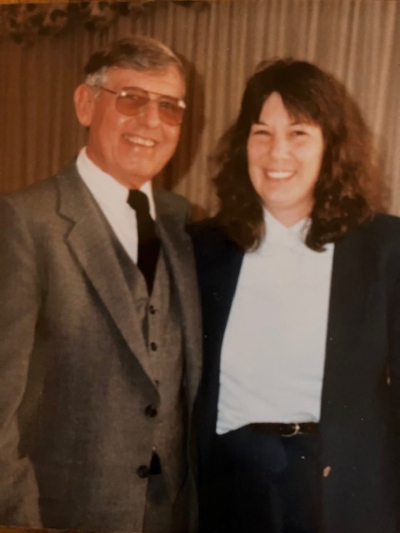
I don’t know – I was just intrigued by the atmosphere. We had accounts, so you’d go in the bank, and it was exciting, you know? I stayed throughout college and even after college.
It was in your blood at that point – you really liked it.
Yeah, and it gets you to understand customers when you work in the branch with the people. Eventually, I moved to the back office. I got a job in the investment portfolio management area.
What lessons did you learn in high school, doing that job, that still stay with you today?
Working in the bank gave me an appreciation of what it’s like working the front line in a bank. Even today, I know what the tellers are going through. That experience allows me to help them more. If they call me, I know a customer is sitting there, wanting something immediately. I have a feel for what’s happening in that branch.
Where did you end up going to college, Dorothy?
I went to West Chester when it was still a state college. My sister had gone there and always came home and raved about it. I thought it was close enough to home that I could go home here and there if I wanted to. A few times, I gathered a couple friends in that car that I bought, took them home for dinner, and then we’d drive back to college because it’s only a half-hour ride.
I looked at Temple and other colleges in Philadelphia. But I didn’t want to be in the city – I’d rather be in suburbia.
Looking back, was West Chester a good choice for you?
I think so. The professors were good, I made a lot of great friends, and I had good experiences.
So you got out of school and continued in banking?
I continued with Commonwealth. I was still in the branches, and then I thought, while I’m still used to studying, I should get my MBA. So I did that at night by going to Temple-Ambler. It took three years of night courses, and I earned my degree. I talked to people at the bank about some kind of opportunity, and they gave me a chance in the investment department.
Was taking a job in investments a good move for you?
I loved it. It was the beginning of my career today. The markets – you know how volatile rates can be – the Fed tightening, the Fed easing, all these things. All the different types of investments – what’s best for the bank, what’s not. And then, we learned about risk management as well. They were just starting that up in the mid-80s.
At some point, I decided I should probably make more money, so I looked for jobs at Meridian Bank – the original Meridian headquartered in Reading. Management gave us every chance in the world to run our departments. They supported us and filled us in, but their philosophy was, “We’re not going to interfere; just run it the way you think is best.” We were given a lot of responsibility. I got a lot of experience in risk management, including investments and asset liability management.
I met Jeane Vidoni while I was at Meridian. We were very close for the years we worked there. She was in several different departments in retail – either strategic planning, marketing, or lending areas. We worked together a lot, and then we stayed in touch.
Looking back over your career, Dorothy, who were the people who saw promise in you and opened up doors?
One boss in particular – her name was Penny Flaherty. She was the treasurer at Meridian. She continually promoted me – it seemed like every year, she promoted me to have more responsibility. But I worked my butt off in those years.
What do you think Penny saw in you?
She saw everybody else sitting around all afternoon, shooting the shit, and me in my office studying something, trying to figure something out, looking for new investment opportunities.
Where does that curiosity and work ethic come from?
I don’t know. I think I’m a lot like my dad was because he was always like that – always studying something. He could do anything just by studying it. He could do plumbing, car repair, and electrical work. He put a new roof on their house. He did all these things just by studying them.
There are certain areas of risk management, like derivatives, that many people don’t know, but I learned in those days, so I have 30 years on them.
Who else saw promise in you?
At Commonwealth, when I first got to investments, there was a man named Richard Hamblin. He was the treasurer there. He taught me about the markets and the economy. He told me what to look for. Every time a piece of economic data came out, he’d see what rates did, whether they went up or down and taught me to watch the data.
You were a sponge – you just wanted to learn, learn, learn, learn.
Yes, and it served me well. If Meridian had not merged, I’d probably still be there. But then we merged, and we got acquired by CoreStates back in 1995. I stayed on with CoreStates for a short while. That was not a good fit. I then worked at Progress Bank and First Federal of Bucks County.
You helped bring Jeane Vidoni, your CEO, to Penn Community Bank.
Yes, we were First Federal at the time, which eventually became Penn Community Bank. I had stayed in touch with Jeane since time together at Meridian. When our head of retail left the bank in 2006, my CEO asked me if I knew of anyone who could assume her duties. I told him if he was interested in hiring a real head of retail, I could introduce him to someone. A couple of weeks later, the CEO and I had dinner with Jeane, and he offered her the job on the spot.
So how long have you been in this combined role?
Almost 18 years. I came in ’04. Every day there’s something new. I learned never to be too shocked or panicked about anything along the way. People are like, “Oh my god, my stocks are down!” or “I’m down 20 percent!” I tell them, “Don’t panic. Relax. It’s a cycle.” It really is a cycle.
So, here you are at Penn Community Bank. What do you do on a day-to-day basis?
Well, I’m the treasurer at the bank, thanks in part to those two treasurers who took me under their wing. We manage the investment portfolio. We do all the funding for the bank, which has not been that complicated – you know, we got a lot of deposits the past two years during the pandemic and the aftermath of that. We ensure the money’s there if somebody needs to fund a loan. I handle the risk management for the bank – we want things on both sides of the balance sheet to be pretty much matched up, so if rates are rising, you’re not getting hurt, and if rates are falling, you’re not getting hurt too much, either.
Is being treasurer hard, Dorothy?
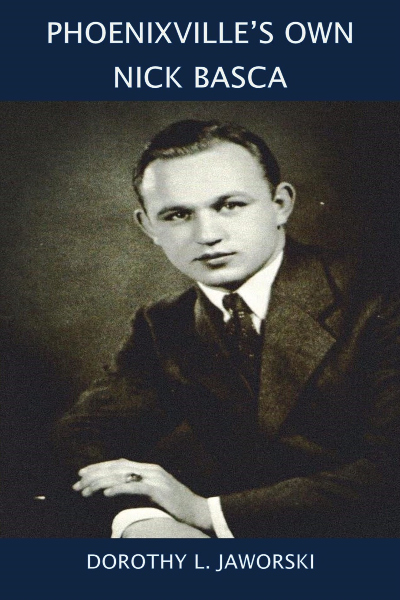
It can be. Sometimes it’s easy; sometimes, it’s tough. It was difficult during the volatile months like March and April this year. Every time you bought an investment, rates would rise, so I had to figure out what to do. We paid off some debt that we had outstanding. Pricing loans and deposits– that’s a challenging process when rates are rising a lot because loan and deposit rates don’t move like the market does.
What do you bring to the job that’s unique and different?
Experience and a calmness so that people don’t get too anxious over something. I help a lot with the pricing throughout the bank. I help a lot with the economic data – I’m a part-time economist. I also like to build analyses.
What’s the most challenging part of your job?
Figuring out what to do – what investment to buy, what maturity to buy, short or long, what funding to put on for it, short or long. That’s probably the biggest challenge, along with pricing.
So what do you do in all your free time?
I spend a lot of time with my family. I have five great-nephews and -nieces that are all young. The oldest is 8. So I try to spend a lot of time with them, just like I did with my 6 nephews.
I also like to write. I’ve written a couple books based on my military research. It started with my uncle Stephen. After my father died, I realized my dad never really knew what happened to him, so I thought, I’ll try to find out.
After a lot of research, I found the exact spot where he was killed and the town where he died in France during World War II, September of 1944. I’ve made five different trips over there. In the town of Noveant, now, a wonderful group of citizens dedicated a plaque with his picture on it along the river, thanks to the book and that research. I didn’t originally start out to write a book, but I had all the research, so I thought I could put this into a book.
After my Dad died, one of my nephews said to me, “We should write a book about Pop.” I was working on that, and I stopped and started researching the military stuff with Stephen. I traced his whole military service across Europe, from when they landed to when he died. Eventually, I did finish that book about my Dad.
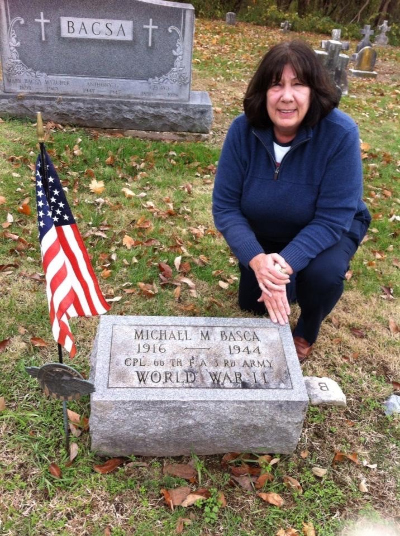
Then I did the same research for a man from Phoenixville – Nick Basca. He used to be a Villanova football star, and he was on the Eagles. The people in France actually asked me if I knew of him. I said no, but the more I read, the more interested I was. So I did more research on him too.
I love to travel, so that’s another thing. We were just over in France for two weeks in July. We went to the town where Nick was killed, and they also put up a plaque to honor him.
Do you read much? You must, if you write.
I love to read. I don’t read a lot of fiction today, but a lot of nonfiction and military stuff.
Do you have a favorite author?
I guess I would say Patricia Cornwell. She wrote this detective series called the Scarpetta series, probably 20 different books.
In this chaotic world, what keeps you hopeful and optimistic, Dorothy?
Young kids. Seeing them and being around them gives you a different perspective. They don’t care – they’re trying to grow up. They don’t care about politics.
That’s like a wave too. Right now, we’re in a deep part of the wave, where things are just so divisive, but we have seen that before. It’s just terrible, but when you look at somebody who just doesn’t let it affect their life at all, it’s like, well, why am I worried about it so much?
I solved a lot of that by not watching the news anymore. I watch the local news, but I don’t watch any talking head cable channels.
Finally, Dorothy, what’s the best piece of advice you ever got?
When I was at West Chester, I was going to change my major from business management to accounting. And my dad, who was an accountant, said he didn’t want me to do that. He wanted me to go into finance, learn more about investments and all that, and I took his advice. If I hadn’t, I’d be sitting at a desk adding up numbers right now. He said, “You’ll just sit and reconcile everything that happened last month. What’s going to happen?” Do you know?
We make a lot of projections at the bank, and it’s my department that’s the most comfortable doing that. I credit Dad with my decision to study finance and the success I’ve had. He always encouraged me. He was always there for everything.
Connect With Your Community
Subscribe for stories that matter!
"*" indicates required fields



























